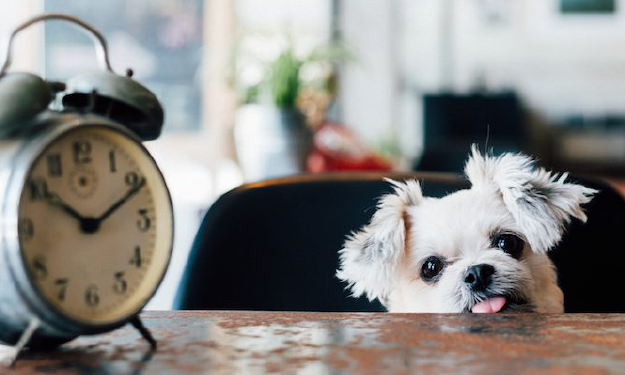A Guide to Pet Poison Prevention

Our furry friends will sniff out and eat anything they can get their paws on. Even though your home seems like the safest place for your pet, there’s things in your cabinets, backyard, countertops, and garage that can be poisonous to dogs and cats. Pet poisoning treatment can be costly and require a long hospital stay, and can seriously harm your pet. But there are steps you can take to prevent pet toxicities.
The first step is to know what is toxic to pets, and to keep those things out of your home or safely secure. Click on the links below to learn more.
(Please note: this list is not exhaustive of all toxic substances for pets.)
Foods
- Chocolate: dark chocolate and Baker’s chocolate are very toxic to dogs. The darker and more bitter, the more dangerous.
- Grapes & Raisins: this toxicity is idiosyncratic, meaning that there is no way to predict which dogs will be affected or not, but even a small amount in a susceptible dog can be fatal.
- Xylitol (sugar substitute): found in chewing gum, peanut butters, medications, and even deodorants and baby wipes.
- Uncommonly known foods: check out these lesser known toxic foods, like Macadamia nuts and bread dough.
holiday foods:
- St. Patrick’s Day: from corned beef to shamrocks, keep the Irish festivities to the humans.
- Halloween: suddenly, there are bags of candy in your home that smell delicious to your dog!
- Thanksgiving: the holiday of fatty foods, meaning ER visits for pancreatitis.
- Holiday Season: festive foods and holiday plants can be dangerous for your pets.
Household Items
- Cleaning products: from bleach to floor cleaners, you don’t want your dog or cat licking these off their paws.
- Essential oils: some essential oils, like tea tree oil and eucalyptus, are highly toxic to cats.
- Houseplants: if your cat or dog is a chewer, check out these pet safe and not-safe houseplants.
- Lilies: it only takes 1-2 leaves, or just the pollen, to kill a cat or cause severe kidney failure.
- Rat & mouse poison: if your dog sniffs out the bait or your cat eats a poisoned mouse, they could be poisoned themselves.
Medications
- Prescribed & over-the-counter medications: while you can’t always control which medications you need to have in your cabinet, you can control where you store them.
- Marijuana: from edibles to oils, we always encourage pet owners to be open and honest if they think their pet got into marijuana.
- Flea & tick medication (made for dogs, used on cats): never use flea & tick medication made for dogs on your cat!
- Fluorouracil (human chemotherapy drug): each year we see dogs that have, unfortunately, ingested a human chemotherapeutic agent called 5-FU.
Backyard & Outdoors
- Sago palm: this tropical/subtropical plant is commonly used as ornamental bonsai plants or grown in the backyard, and pet owners are not aware that they can be harmful to their pets if ingested.
- Mushrooms: 99% of wild mushrooms are harmless, but that 1% can prove to be quite deadly if left untreated.
- Salt: drinking ocean water at the beach or eating excessively salty foods can harm your pet.
- Antifreeze: dogs often consume large quantities before being repulsed by the aftertaste, and it doesn’t take much of the lethal ingredient ethylene glycol to cause fatal damage to your pet affecting the brain, liver and kidneys.
What to do if you think your pet ate something toxic
Time is of the essence. Follow these steps immediately:
- Gather as much information as you can: Do you have the wrapper, box, or any packaging? How much did your pet appear to eat? When did they eat it? How are they acting?
- If no symptoms have presented yet, or you’re unsure if your pet ate something: call the 24/7 Pet Poison Helpline (855-764-7661) or the 24/7 ASPCA Animal Poison Control line (888-426-4435). Click here to find out why we ask you to call.
- If your pet is showing symptoms or you are sure they ate something: go to the nearest open veterinary hospital or your primary care vet OR go to the nearest emergency veterinary hospital if time permits.
Preventing pet poisonings: what you can do as a pet owner
- Educate yourself on pet toxicities. You can’t know everything, but researching before bringing something new into your home can help.
- Keep potentially toxic substances in high or locked cabinets.
- Keep the Pet Poison Helpline and/or ASPCA Poison Control phone numbers in your cellphone ready to go.
- Keep your pet close to you when outside: from trash on the ground to substances they can lick up, it only takes a moment for your dog to grab something. Keep them on a leash and be aware when walking.
- Opt for pet-safe brands and alternatives.
- Puppy proof your home.
- Teach your children to put away and keep away potentially harmful substances such as candy, gum, etc.
- Put your pet in a separate room during holiday meals, cleaning, baking, and other times where poisoning could happen.
- Never give your pet something new without first consulting with their vet.
- Get pet insurance! If something does happen, you won’t have to decide between cost and care.
Pet poison prevention begins with you. Be proactive, educate yourself and others, and when in doubt go straight to a veterinary emergency hospital.